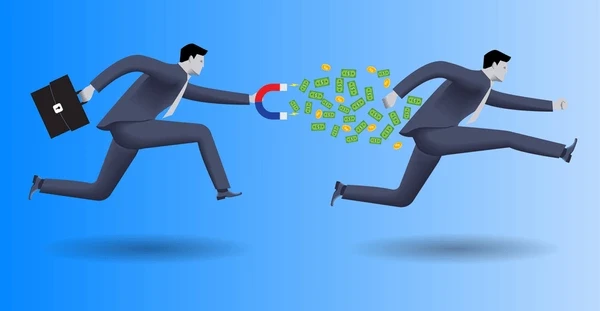
ONE of the most frustrating challenges in business is not competition — it’s debts.
You deliver a service or supply goods in good faith, only to be met with silence, excuses or outright refusal to pay. These debts can cripple cash flow, stall growth and rob you of peace of mind.
Yet many entrepreneurs, especially in small and medium businesses, don’t know how to recover debts effectively. They delay, negotiate endlessly or give up, leaving money on the table and encouraging more defaulters.
In my book Legal Battles of an Entrepreneur, I outlined that recovering money is both a legal right and a strategic necessity. Here’s what every entrepreneur must know about debt recovery:
1 Prove the debt exists: Your first line of defence
Before you confront a debtor, be sure you have solid evidence of the debt. This can include:
A signed contract or agreement;
(Invoices, delivery notes or purchase orders);
- Ex-UK envoy roasted over ED links
- Business opinion: Branding in the age of entrepreneurship and industrialisation (Part 22)
- Business opinion: Branding in the age of entrepreneurship and industrialisation (Part 21)
- Business opinion: Branding in the age of entrepreneurship and industrialisation (Part 20)
Keep Reading
Proof of payment (for example, bank deposits, mobile transfers), and
Written or electronic communication (emails, messages) confirming the deal and debt.
Without proof, it becomes a “your word vs theirs” situation. Always keep detailed records and back up your claim.
2 Issue a formal demand
Your next step is a demand letter — a formal notice requesting payment. This letter should include:
The total amount owed;
A summary of how the debt arose;
A deadline to pay (usually within 7–14 days);
A clear statement that legal action will follow if payment is not made; and
Well-drafted demand letters often trigger payments, especially when issued through a legal representative. This step can save you time and money by avoiding court.
3 Consider an acknowledgement of debt (AOD)
If the debtor admits the debt but asks for more time, have them sign an acknowledgement of debt. This legal document should:
Confirm the amount owed;
Outline a clear payment plan;
Include a clause allowing legal action without further warning if the debtor defaults.
An AOD makes it easier to secure a quick judgment in court if necessary.
4 Go to court if necessary
If your demands are ignored, legal action becomes your next option. In Zimbabwe, you can:
Use the Magistrates Court for debts under US$$10 000;
Go to the High Court for higher amounts;
Once a civil summons is issued, the debtor must respond. If they don’t, you can request a default judgment. If they contest, the matter proceeds to trial, where both parties present evidence.
5 Enforce the judgment: Don’t Just win — collect
Winning in court is only part of the battle. You must enforce the judgment using tools such as:
A Writ of Execution to seize and auction the debtor’s property;
Garnishee orders to deduct money from their bank accounts or salary;
Eviction orders or interdicts if real estate or specific actions are involved; and
Persistence and follow through are key to turning a legal victory into real recovery.
6 Don’t wait too long: Know the prescription rule
In Zimbabwe, most civil debts prescribe after three years. That means if you don’t take legal action within that period, the debtor can legally escape liability.
Act early. Delays reduce your legal power and allow defaulters to get away.
7 Use mediation — But with caution
Sometimes, especially with relatives or trusted clients, mediation can help to preserve relationships. However, make sure any agreement is:
In writing;
Signed before witnesses or a commissioner of oaths;
Clearly stating payment terms and deadlines; and
Avoid relying on verbal promises — they hold little weight in court.
8 Prevention beats cure
Recovering debt is difficult. Preventing it is smarter. You can minimise risk by:
Having written contracts for all business dealings;
Screening clients before extending credit;
Including clauses for interest, legal fees and penalties;
Tracking payments and responding immediately to defaults; and
A strong legal foundation makes debt less likely — and recovery more effective.
Conclusion: Be legally assertive, not emotionally reactive
Entrepreneurs often lose money not because debtors are smarter — but because they hesitate, fear confrontation or lack a legal strategy.
Remember: You have the right to be paid. Chasing debt doesn’t make you desperate — it makes you disciplined. When done professionally and lawfully, debt recovery protects your business and sets a standard others must respect.
- Believe Guta is a seasoned entrepreneur, litigation strategist and author of Legal Battles of an Entrepreneur. He is a director, board member of two property development companies and he is the proprietor of Big Brains Legal Aid Trust. He champions legal literacy for entrepreneurs. Contact: +263 773 681 939, Email: beguholds@gmail.com










